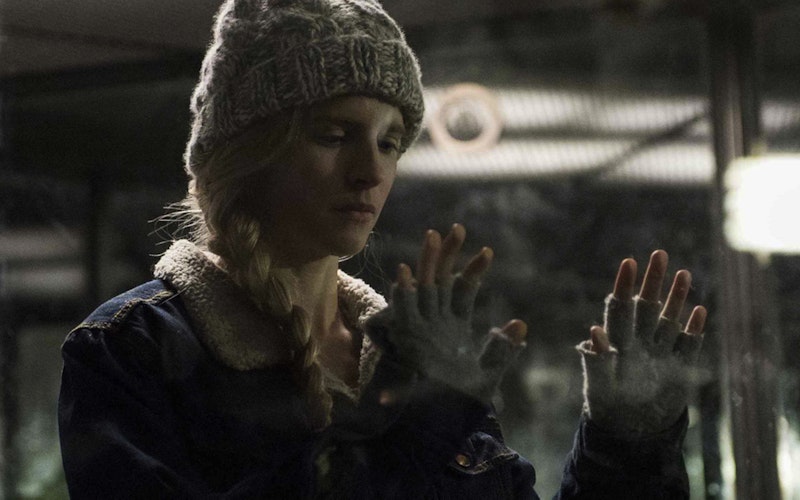
TV
Does The OA Want to Believe?
I don’t remember the last time I simultaneously loved and hated a show as I have The OA. Netflix’s new offering is beautiful, weird, compelling, annoying, engaging, and boring in equal measures. I’d eagerly click the “next episode” button, only to be rolling my eyes five minutes later.
The first episode starts strong: a blind woman named Prairie (Brit Marling) who disappeared seven years ago returns with her sight restored. She doesn’t explain where she was and doesn’t want to be touched. The only people Prairie connects with are a group of five outcasts, loners, or troublemakers she recruits for reasons she won’t explain. As she slowly shares her story with them, the group grapples with whether to believe her increasingly implausible tale, while also recognizing they have found a makeshift home together.
That’s about all of the plot I can describe without spoiling things. The show’s mystery is one of its most engaging elements, communicated through fabulous cinematography and set design. This is a show where every detail is the work of an artist with a clear vision, and that alone makes it worth discussing. (Marling created The OA alongside her frequent collaborator Zal Batmanglij.) Even when the show fails, it fails with ambition.
Ultimately, The OA hooked me because even when the dialogue is clunky, the pacing drags, or the plot developments are cringe-inducing (a major plot piece involves interpretive dance … and it’s worse than that sounds), the show grapples with a pair of intriguing questions: What reality lies beyond our life and death? How do the stories we tell about the afterlife bind us to each other?
The OA illustrates how empty an earthbound narrative is.
A week after finishing The OA, my thoughts kept returning to the community that forms around Prairie. Each of these people are lost, lonely, and hurting. One of the kids, a model student with a bright future, is secretly addicted to cocaine. Another one has anger issues so severe he’s about to be sent to a boot camp for rebellious teens. One of the members is struggling with gender identity. Another’s twin brother recently died. All of them are unmoored from their lives and looking for meaning beyond their immediate reality.
The OA illustrates how empty an earthbound narrative is and how desperate we are as humans to not only find a story that gives meaning to our life, even after death, but to band together with like-minded people to use these stories to be a force for good in the world. While most prestige shows tend to look skeptically at spirituality, The OA celebrates it.
Except … sometimes it doesn’t. Without spoiling anything, I’ll only say that The OA ultimately seems to suggest that it doesn’t really matter whether or not the spiritual stories we tell each other are true. Maybe it’s just in the believing that we find hope. The show’s villain, for instance, is a scientist committed to proving that the afterlife exists. His need to know, to prove, to document the deepest spiritual reality leads him to do despicable things. In this The OA goes beyond acknowledging the mystery of life, God, and eternity, and suggests that making absolute claims about spirituality is the worst of all sins.
But what about the people surrounding Prairie? The OA drew me to care about this group, who believe Prairie’s story and in doing so come to do good in the world, regardless of whether or not what she tells them is true. If Prairie’s story is true, then the ending of The OA is beautiful and redemptive. If it’s not true, then the show’s finale is false—and insulting, as the people I grew to care about would have found out far too late that they’ve believed a lie.
And therein lies the real reason I was ultimately frustrated by The OA. Truth about God, faith, and the afterlife does matter, and the search to find it should be taken seriously, not brushed away as a nice idea to make us feel better. I care about the people in our world, after all, and I don’t want them to find out far too late that they’ve based their lives on a lie.
Topics: TV, Culture At Large, Arts & Leisure